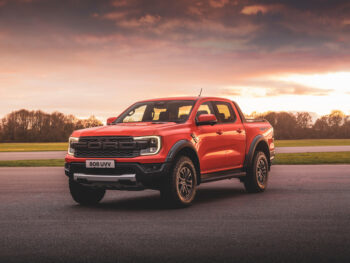Government U-turn on plans to tax double-cab pickups as cars
HMRC has scrapped plans to change the tax treatment of double-cab pickups just a week after the move was announced.

HMRC has said double cab pickups over one tonne will continue to be treated as goods vehicles rather than cars
New guidance was issued on 12 February 2024 announcing that double cabs with a payload of one tonne or more would be treated as cars rather than goods vehicles for both capital allowances and Benefit-in-Kind purposes from 1 July 2024. The move was meant to address a loophole whereby some double-cab pickup drivers pay less tax than on traditional company cars, but resulted in an uproar amongst the farming and motoring sectors.
The change has now been reversed and HMRC has said double cab pickups will continue to be treated as goods vehicles rather than cars, and businesses and individuals can continue to benefit from the historic tax treatment. However, double cab pickups with a payload of less than one tonne will continue to be treated as cars.
The Government said it had “listened carefully to views from farmers and the motoring industry on the potential impacts of the change in tax treatment”.
It also acknowledged that the guidance update could have “had an impact on businesses and individuals in a way that is not consistent with the Government’s wider aims to support businesses, including vital motoring and farming industries”.
Nigel Huddleston, Financial Secretary to the Treasury, said: “We will change the law at the next available Finance Bill in order to avoid tax outcomes that could inadvertently harm farmers, van drivers and the UK’s economy.”
Under the current system, HMRC uses the VAT approach for double cab pickups, which is differentiated based on payload, with anything under one tonne classified as a car, and anything a tonne and over as a van.
However, the changes announced last week would have introduced a two-part test on whether the construction was primarily suited for “the conveyance of goods or burden of any description” and whether any modifications had been made. It was expected that most, if not all, double cab pickups would have been classified as cars when calculating the benefit charge – because “typically these vehicles are equally suited to convey passengers and goods and have no predominant suitability”.
Not only would this have resulted in hefty BiK charges for drivers, and Class 1A NICs for businesses, but it would have also meant lower capital allowances for such vehicles.
The change followed a 2020 Court of Appeal ruling that most multi-purpose vehicles, such as double cab pickups, are cars in the case of Payne & Ors (Coca-Cola) v R & C Commrs.
The tax on the Benefit-in-Kind will now not increase when employers provide these vehicles to their employees; and the capital allowances available in the first year of use will now not be reduced when a business purchases this vehicle for use in their trade.
HMRC added that the U-turn would “ensure a continued generous and consistent treatment of DCPUs for capital allowances, Benefit-in-Kind, and VAT purposes, maintaining simplicity in the tax system”.
The Government will now legislate to ensure that double cab pickup vehicles over one tonne continue to be treated as goods vehicles for tax purposes. A consultation will run on the draft legislation to ensure that it achieves that outcome before being introduced in the next available Finance Bill.
Accountancy firm Crowe UK welcomed the change of plan.
Simon Warne, partner, private clients, said: “HMRC’s U-turn is welcome news for the automotive industry as well as businesses that rely on four-door ‘double-cab’ pick-ups, especially those in the farming and construction sectors. The volume of opposition reflects the angst the impact these proposed tax changes could have had on raising costs for businesses and a potential decline in sales for manufacturers as a result.
“We look forward to the outcome of HMRC’s proposed consultation to ensure accompanying guidance and legislation offer clarity and support for businesses.”












